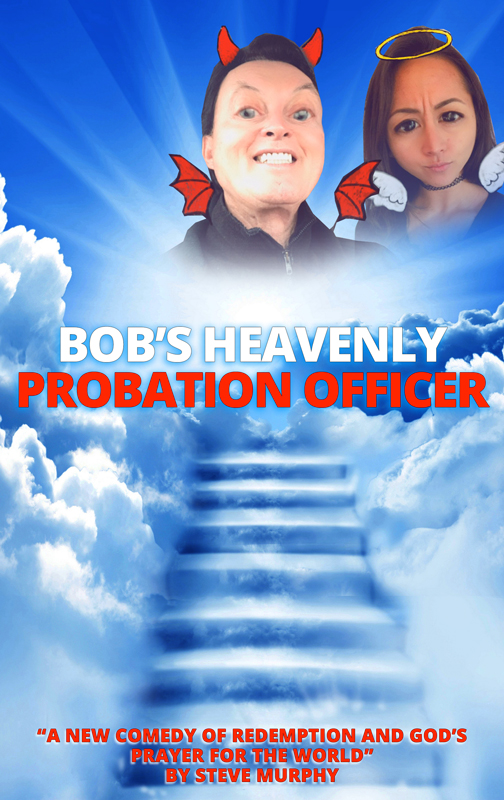| Featuring Chief Justice Elizabeth A. Weaver and David B. Schock, Ph.D. | | Print | |
| America's Best Selling Authors | ||||||||||
 America's #1 TalkRadio Show Presents"America's Best Selling Authors Series"
Guest: Chief Justice Elizabeth A. Weaver Elizabeth “Betty” Ann Weaver is a daughter of the south. She was born and reared in New Orleans, graduated Phi Beta Kappa from Newcomb College, and top ten in her law class at Tulane University Law School, Order of the Coif, and Honor Graduate. She moved to Michigan, already a lawyer, and began a second career as the dean of girls and French teacher at the private Leelanau School and subsequently as a public school first grade teacher in the Glen Lake Community School, both in the Leelanau Peninsula. Weaver was first elected in 1974 as the Leelanau County’s probate/juvenile trial judge, a part-time position. She excelled enough to attract national attention (appearing on Good Morning America and in People magazine) for her innovative methods in dealing with recalcitrant youth. She also was a tireless worker for court reform at the trial-court level. She was re-elected twice more to that position. In 1986 she ran for and was elected to the Michigan Court of Appeals. She was re-elected in 1992. She ran for the Michigan Supreme Court in 1994, was re-elected in 2002, and sat on that court until she resigned in August of 2010. She served as chief justice from 1999 to 2001. In all, she ran for office seven times and was elected each time. As she puts it: “Always elected; never appointed.” She was, however, appointed by four of Michigan’s Governors to various commissions and committees.
Guest: David B. Schock, Ph.D. David B. Schock, Ph.D., is an award-winning film producer. His work includes the poetry films Star by Star: Naomi Long Madgett, Poet and Publisher, a film about the life and career of Detroit’s Poet Laureate, Naomi Long Madgett and Jump Back, Honey: The Poetry and Performance of Herbert Woodward Martin, a documentary about a poet who has—as part of his career—championed the poetry, plays and fiction of Paul Laurence Dunbar. Schock also produced and directed First Class (2009), a film based on the reading of a one-man play by David Wagoner about Saginaw poet Theodore Roethke. Schock also works to tell the story of cold cases. His murder films include Who Killed Janet Chandler?, Jack in the Box, Finding Diane, and Into the Dark. His murder work can be viewed at the website http://www.delayedjustice.com. He also has made films about integrity issues at the Michigan Supreme Court and also a film about the Ku Klux Klan. He is the recipient of two Michigan Humanities Council awards to support his films, including for his latest film, The Road to Andersonville, the story of Michigan Native Americans who fought in Company K of the 1st Michigan Sharpshooters during the Civil War. He has won three outstanding documentary awards from the Historical Society of Michigan. He holds a B.A. in religion from Albion College (where he spent his junior year studying abroad at The American University in Beirut), an M.A. in journalism from Central Michigan University, and a Ph.D. from International College (now defunct) in literary criticism and creative writing. His dissertation and project of demonstrated excellence dealt with the theses of Rudolph Otto in his The Idea of the Holy (Das Heilige). He earned his doctorate under the tutelage of Dr. Russell Kirk. Schock is a former newspaper reporter, editor, radio producer and reporter, television reporter, and academic. He has taught at Central Michigan University (1984-1991) and at Hope College, in Holland, Michigan (1994-2006). THE BOOK: “Judicial Deceit: Tyranny and Unnecessary Secrecy at the Michigan Supreme Court” Judicial Deceit is an unprecedented retelling of modern judicial history, a retired chief justice gives us a glimpse inside the way things have worked at the Michigan Supreme Court. The book reveals much that has hitherto been hidden from public knowledge. But even at 770 pages, the justice says the tome is “only a little more than the tip of the iceberg.” The story is told through court documents, internal communications, and detailed interviews. The book also compiles media accounts and other interviews that put the history in context. Through it all is the narrative of the justice who—at great personal cost—led the struggle to let the people of Michigan know what had been going on. n her nearly 16 years on the Michigan Supreme Court, Elizabeth Ann Weaver has seen just how justice can move from mostly serving the public to the ways it can be put to use for political, personal, and ideological gain. She maintains that purpose in her most recent revelations: the book is written to share with citizens the need for reform in the way the state selects its justices and to illustrate the need to eliminate unnecessary secrecy and to encourage openness and transparency in the transaction of the people’s judicial business. (There is an appendix in the book that lists recommended reforms.) Weaver began her judicial career as a part-time probate/juvenile trial judge in sparsely populated Leelanau County. By dint of her ability, determination, and her character she was elected six more times including twice more at the trial court, twice at the Court of Appeals (a district representing 66 counties of 3.1 million people), and twice at the Supreme Court (all 83 of the state’s counties of then more than 10 million people). As the court was taken over by gubernatorial appointees, people ill-suited and not always qualified for the work, things grew stranger and stranger. Weaver relates her experience of the explosive fellow justice who would repeatedly browbeat staff (who also carried a firearm into the building), the justice who would go after lawyers who disagreed with him, justices who violated fund-raising practices, justices who would claim to be conservatives but who would behave as activists and change the law from the bench. And every time that Weaver would step up to warn them or to stop them, they would attack her, refusing to publish her dissents, even promoting or creating a “gag order” that they thought would keep her from speaking out. In the end, it was open warfare, with the Engler Four creating bogus charges and sending her to the Judicial Tenure Commission, openly expressing their rage at her behavior because she would not sit down, shut up, and—by their lights—behave. Weaver stood in defense of the Constitution, the laws of the state, and common sense. But she felt some responsibility: Weaver had openly helped some of them come to the court, and had been their friend. The book is composed of 28 chapters and other material that relate Weaver’s career The book tells the story of the composition of the court and how Governor John Engler managed to take it over, the treatment of the internal public (employees), the treatment of lower-court judges (including attempts to bully them out of chief judgeships and even off the bench) for personal and political reasons, and the treatment of the state’s laws (changing them entirely or modifying them at will) and the entrenched lack of regard for the state’s Constitution. Story after story comes from Justice Weaver’s recollections and deep files (she kept most everything), and co-author David Schock’s extensive research. Weaver is opening the door to what she saw, heard, and experienced. Along the way we talk with other judges, lawyers, and employees who felt the hand of this court, arguably the worst in the nation. And the story arc is that the Michigan Supreme Court became and remains tyrannous, unnecessarily secretive, and judicially deceitful. Jack Girardi, Partner at Girardi Keese, is one of America's Finest Trial Lawyers and our Co-Host, as always, brings out the most important key elements to the success of today's guests. He and his firm have been dedicated to working hard and getting the best possible recovery for its clients. Girardi Keese's mission is to provide aggressive representation of individuals and businesses who have been injured in sous way, whether by physical harm, property damage, damage to business, or damage to economic interests. Girardi & Keese has two offices in California: Downtown Los Angeles and San Bernardino. www.girardikeese.com Hosted by Steve Murphy
 Brought to you by "The Law Business Insider" Contact:
Guest: Chief Justice Elizabeth A. Weaver
Guest: David B. Schock, Ph.D.
Jack Girardi Steve Murphy |
||||||||||
| Last Updated on Tuesday, 10 November 2015 23:03 |
































